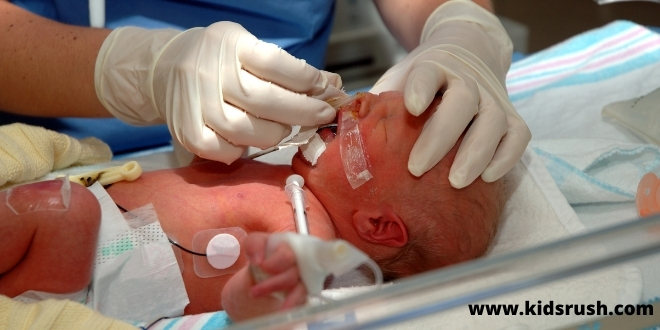Perinatal asphyxia is a very serious condition that can result in the death of a baby. In this article, we will explore the causes and risk factors for perinatal asphyxia.
Perinatal asphyxia is when a newborn baby suffers from hypoxia. This can, in the worst case, lead to death. Today we want to talk about some risk factors for perinatal asphyxia.
This condition can occur before, during, and after childbirth, and the reasons are several.
According to a recent study, around 20% of babies who suffer from perinatal asphyxia die, and those who survive often suffer from permanent neurological problems.
In this article, we will take a look at what this is.
Main risk factors for perinatal asphyxia
The World Health Organization (WHO) includes neonatal asphyxia as one of the leading causes of death for newborns.
Doctors will often notice that the baby suffers from a lack of oxygen when it is not crying or moving. Another thank you is that its body is unfaithful.
In any case, doctors must act quickly. They must monitor the situation carefully and try to determine what caused the suffocation and the best solution.
A baby who suffers from a lack of oxygen before giving birth may require an urgent cesarean section.

What causes perinatal asphyxia?
There are several risk factors for perinatal asphyxia, and they can vary depending on whether it occurs before, during, or after childbirth.
Perinatal asphyxia before childbirth
This type of asphyxia can occur during all months of pregnancy but usually occurs closer to delivery.
This is why routine examinations are important so that you can be sure that everything goes well for the baby and the mother. Some of the contributing factors are:
- Anemia in the mother.
- Bleeding during pregnancy.
- Incorrect positioning of the baby’s head.
- Prolonged pregnancy (over 42 weeks)
- Infection in the mother.
During childbirth
During childbirth, certain dangerous situations can occur. Although doctors are prepared to deal with all circumstances, it is important to know what can happen in extreme cases:
- The umbilical cord is wrapped around the neck or compressed.
- Preeclampsia, or pregnancy toxicosis, increases the mother’s blood pressure.
- Breathing problems in the mother.
- Use of pliers.
- Childbirth that lasts longer than it should.
After the birth

Although birth is complete, the risk of perinatal asphyxia may remain. The reasons include:
- Premature birth, because the baby’s organs will not be strong.
- Congenital malformations.
- Lung or heart disease.
- Severely underweight babies.
Normally, babies with mild asphyxia cry too much, are irritable and have too much muscle tone. However, this generally does not last for more than one day.
If, on the other hand, the situation is more serious, the newborns may have convulsions, lack sucking reflexes to breastfeed, and have very low muscle tone.
Neurological damage
How quickly the perinatal asphyxia was treated and whether it caused the newborn to have epileptic seizures affects the risk of neurological damage.
Neurological damage occurs mainly if the baby has had some form of convulsions or epileptic seizures, if the asphyxia lasted for a long time or if other factors played a role.
The risk of suffering from neurological damage is e.g. high if the baby has suffered from some form of a cardiovascular or lung problem.
Another factor that can increase the risk of neurological damage is whether the newborn suffers from acidosis, which is when too much acid accumulates in the blood.
Due to careful monitoring during pregnancy, many risk factors for perinatal asphyxia can be prevented. However, some circumstances are uncontrollable.
But even if certain situations are beyond our control, attentive and qualified personnel can handle any situation in the best way. Perinatal asphyxia can be fatal, so it is important to take preventative measures.
